Cambridge: Controversial busway through Coton Orchard is approved
- Published
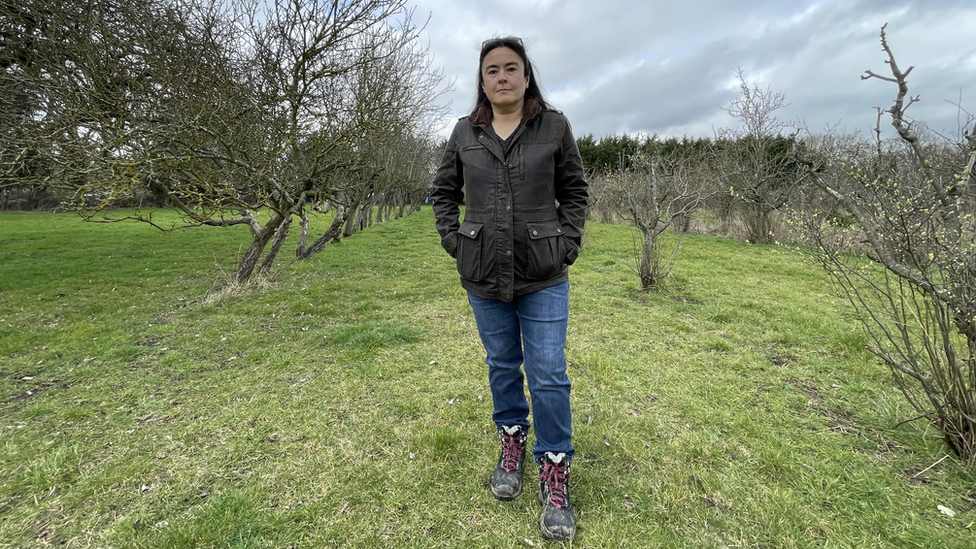
Anna Gazeley fears the ecological value of the orchard will be damaged by the busway
A planned new busway that bisects an ancient orchard has been approved - 10 years after it was first proposed.
The 8.6 mile (14km) route, costing £200m, will link the growing new town of Cambourne to Cambridge.
Cambridgeshire County Council will now seek permission from the government to start building the busway which aims to cut congestion.
An 11th-hour amendment offering an on-road alternative was rejected by the council on Tuesday.
The proposal was formally approved by 33 votes to 26 at the full council meeting, external.
The C2C busway - devised by the Greater Cambridge Partnership (GCP) - aims to take cars off the road, make buses more reliable and cut journey times from Cambourne which is eight miles (13km) to the west of the city.
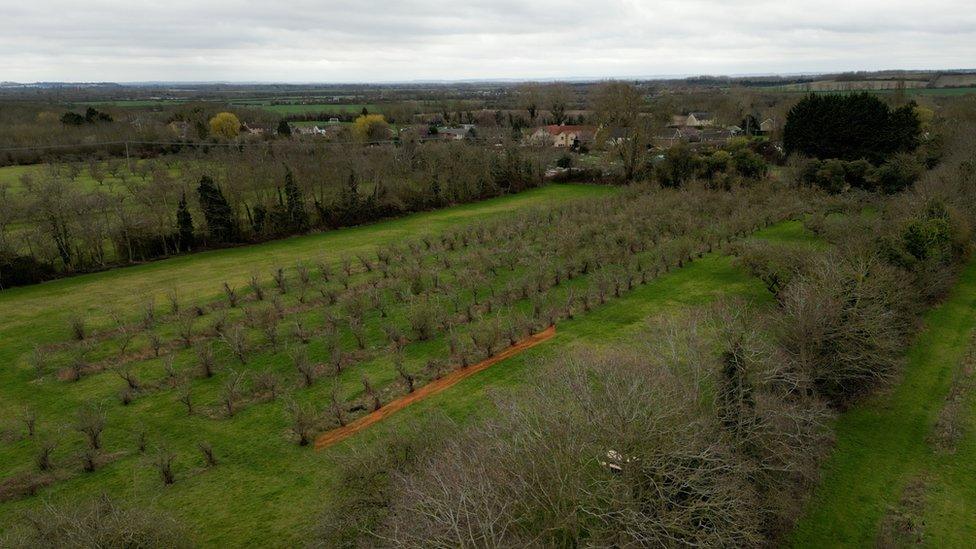
The orchard at Coton grows 26 varieties of apple, as well as pears and plums
But key to the plan has been a campaign to protect a 100-year-old orchard at Coton, through which the proposed busway would cut.
A group of organisations, including Cambridge Past, Present and Future and Coton Parish Council, delivered a petition signed by more than 2,300 people, to the full council meeting.
The GCP said 500 trees at the orchard needed to be removed, but believed the environmental impact would be "lessened to non-significant" within 15 to 30 years by planting new habitats elsewhere.
Coton Orchard contains about 1,000 trees and grows 26 varieties of apples, as well as pears and plums.
The GCP argued much of the current infrastructure, especially the A1303 Madingley Road, suffers heavy congestion at peak times of the day with car trips into Cambridge set to increase by 70% by 2031.
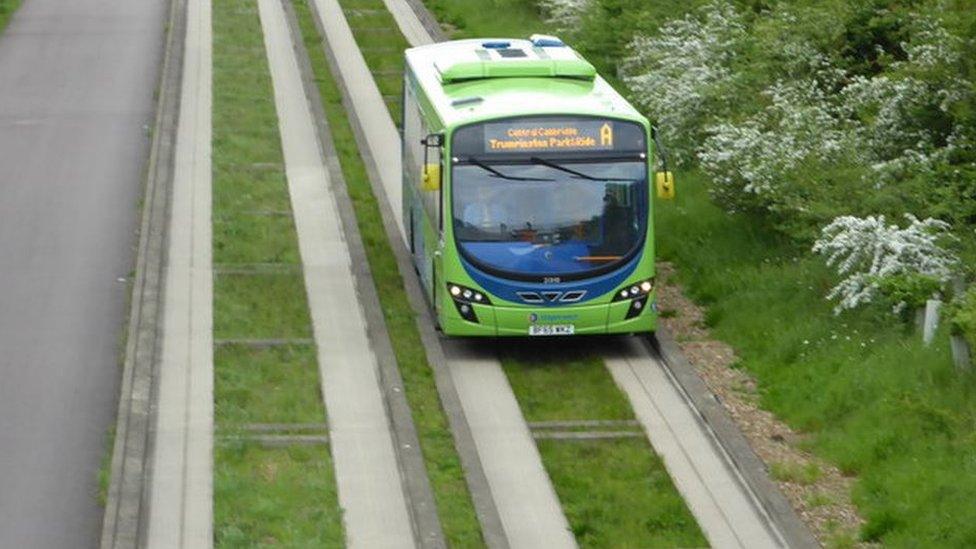
The county council has approved plans for a new busway linking Cambourne to Cambridge
Liberal Democrat council leader Lucy Nethsingha said she would "do everything in my power to ensure firstly that the minimum damage is done to the Coton orchard" and "promises made to ensure biodiversity net gain as a result of this route are honoured."
Conservative councillor Alan Sharp told the meeting he believed "this decision is kicking the people of Coton in the teeth" and a "viable alternative to the proposed scheme has been ignored without proper investigation".
'Mosaic of habitats'
Deputy leader of the council, Councillor Elisa Meschini (Labour) said: "This has been 10 years in the making, four public consultations, an environmental impact assessment, three independent reviews - we have been doing this together with people for as long as it's been possible."
She added: "If we don't deliver this programme we would put homes, jobs and our wider economic success at risk."
Anna Gazeley, whose family own the century-old 60-acre site at Coton Orchard, told the meeting the impact on the wildlife of the busway cutting through the orchard was "utterly destructive".
"The wildlife of orchard sites depends on the mosaic of habitats they encompass," she said.
"Beyond the impact on the wildlife of bisecting the orchard, which is already catastrophic, it would no longer be practically nor economically viable to manage the orchard and so would be lost in its entirety."

What are the plans?
Known as C2C, the 8.6 mile (14km) busway would link Cambridge and Cambourne, via Hardwick, Coton and Bourn airfield
It would include optically-guided electric or hybrid buses on the route
Bus journeys would be 19 minutes faster between Cambridge and Cambourne
A new 30-acre (12 hectare) park and ride north of Hardwick would be created
About 500 trees would be removed from Coton Orchard
There is a commitment to a minimum 10% net biodiversity gain, including 1,500 new trees
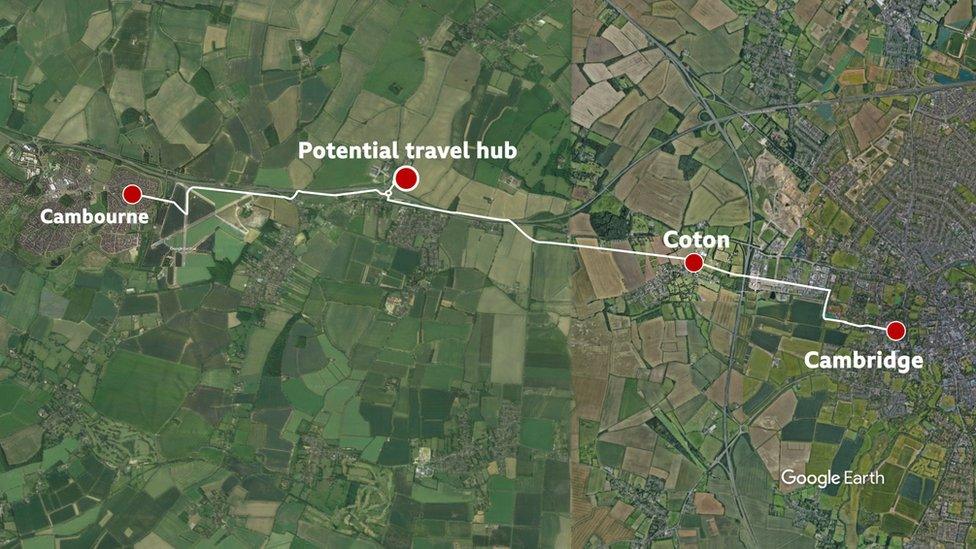
The busway connects Cambridge with Cambourne, eight miles to the west of the city

Find BBC News: East of England on Facebook, external, Instagram, external and Twitter, external. If you have a story suggestion email eastofenglandnews@bbc.co.uk, external
Related topics
- Published21 March 2023
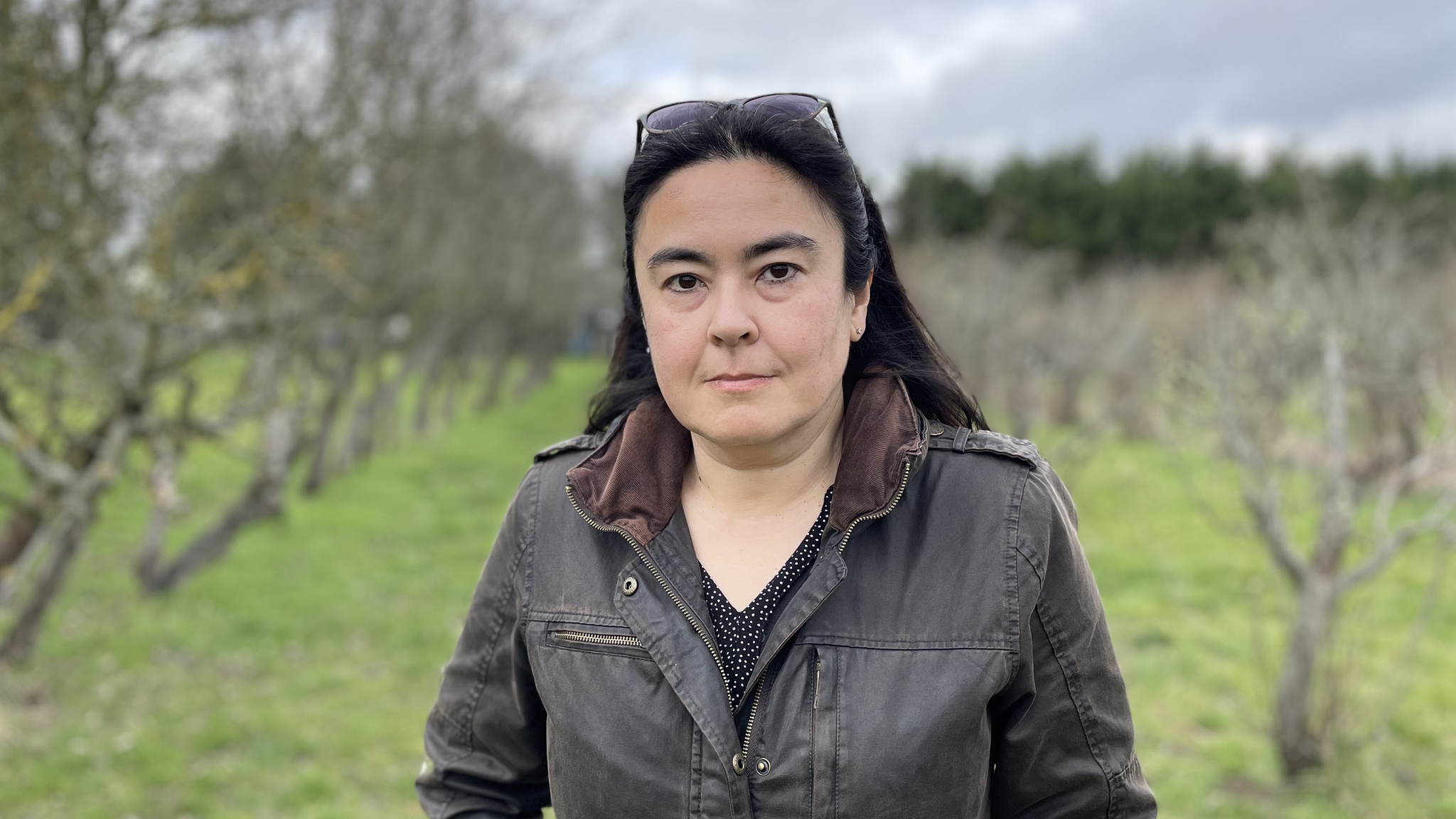
- Published2 July 2021
